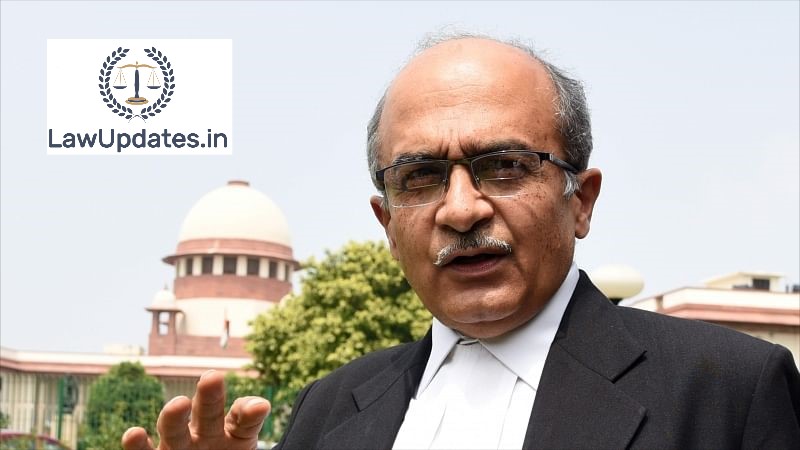The Supreme Court, in a recent judgement, has held that Judges cannot be held responsible for end result or effect of their decision. It remarked that, the end result of the Judicial process does not matter, and what matters is only the decision making process employed by the delinquent officer.
The judgement came out in a case titled as Sadhna Chaudhary vs. State of U.P. & Anr.
CASE BACKGROUND
In the Present case, The appellant was recruited into the Uttar Pradesh Judicial Services and was posted as Additional Munsif, Dehradun. She was subsequently promoted to CJM Cadre and again to Uttar Pradesh Higher Judicial Services.
A division Bench of the High Court of Judicature at Allahabad, while seized of the first appeal against a Land Acquisition Reference, made certain observations with regard to the manner in which some other land acquisition cases of similar nature were being adjudicated by subordinate Judicial officers in the state of UP. A copy of Judgement was placed by the Registrar before the Administrative Committee of HC for appropriate action. The Administrative Committee further constituted a committee to probe into complaints of collusion in Land Acquisition Matters. The committee after going through various Judgements recommended initiation of Disciplinary action against certain judicial officer including the appellant. Accordingly, a charge sheet was served upon the appellant with regard to two Judicial Orders delivered by her.
The Appellant submitted detailed reply to the Chargesheet. Subsequently an enquiry was conducted and it was held that the charges have been proved for these there were error apparent in both cases which were such ‘shocking blunders’that they could not be attributed to mere misjudgement and consequently were proved to be deliberate. The said report was placed before the Administrative Committee which accepted the same and referred the matter to the Full court. The Full Court resolved to dismiss the Appellant from service and consequently the appellant was dismissed from the service. The appellant challenged the order of dismissal before the High Court on Judicial side invoking the Writ Jurisdiction.
The Divisional Bench of the HC took note of the two Land Acquisition references which has been decided by the appellant and held that both decisions are against the Judicial Propriety and in contravention of Judicial norms. Aggrieved by the judgment, the Appellant has filed the present Appeal.
Supreme Court remarked that:
Undoubtedly, the High Court is correct in its observation of the applicable law. Indeed, the end result of the Judicial process does not matter, and what matters is only the decision making process employed by the delinquent officer. Clearly, it is a principle since the nineteenth century that judges cannot be held responsible for the end result or the effect of their decisions. This is necessary to both uphold the rule of law and insulate judicial reasoning from extraneous factors.
Supreme court while referring various Judgements has held:
“We can find no fault in the proposition that the end result of adjudication does not matter, and only whether the delinquent officer had taken illegal gratification (monetary or otherwise) or had been swayed by extraneous considerations while conducting the process is of relevance. Indeed, many a-times it is possible that a judicial officer can indulge in conduct unbecoming of his office whilst at the same time giving an order, the result of which is legally sound. Such unbecoming conduct can either be in form of a judge taking a case out of turn, delaying hearings through adjournments, seeking bribes to give parties their legal dues etc. None of these necessarily need to affect the outcome. However, importantly in the present case, perusal of the chargesheet shows that no such allegation of the process having been vitiated has been made against the appellant. There is no explicit mention of any extraneous consideration being actually received or of unbecoming conduct on the part of the appellant. Instead, the very basis of the finding of ‘misbehaviour’ is teh end result itself, which as per the High Court was so shocking that it gave rise to a natural suspicion as to the integrity and honesty of the appellant. Although this might be right in a vacuum, however, given how the end result itself has been untouched by the superior courts and instead in one of two cases, the compensation only increased, no such inference can be made. Thus, the entire case against the appellant collapses like a house of cards. And Further allowed the appeal And the appellant’s prayer for reinstatement with consequential benefits including retiral benefits is accepted.“
Read Judgement here:

![Judges cannot be held responsible for end result or effect of their decisions: Supreme Court[Read Judgement] 1](https://lawupdates.in/wp-content/uploads/2020/02/supremecourt1-ke4G-621x414-1.jpg)



1 thought on “Judges cannot be held responsible for end result or effect of their decisions: Supreme Court[Read Judgement]”